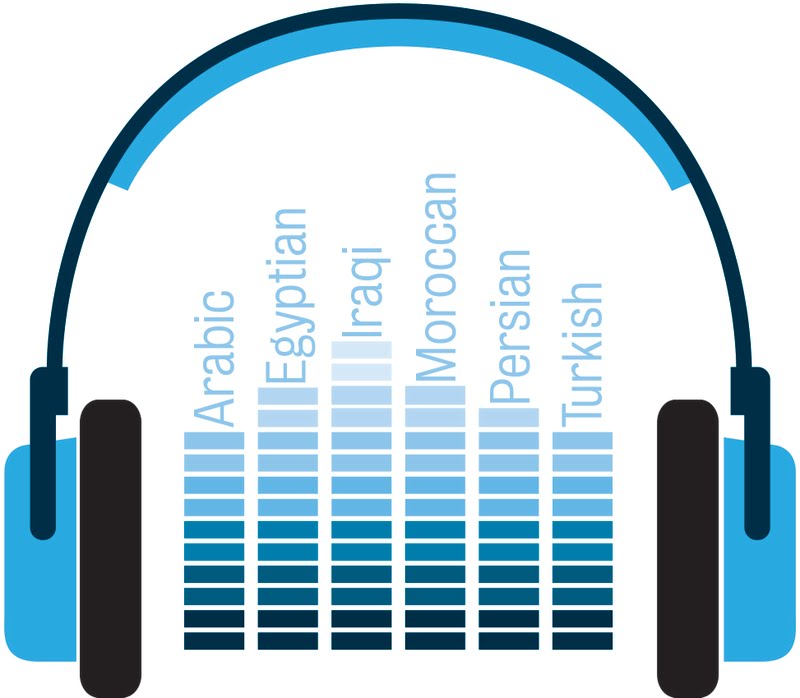UCLA Center for Near Eastern Studies launches interactive language tutorial website

By Emily Liu
May 23, 2013 12:33 a.m.
The image accompanying this article was updated on May 23 at 4:36 p.m.
A video of a teenage girl chatting about her friends in the Egyptian Arabic dialect provides students with their first taste of the relatively understudied language.
The video is on a new Middle Eastern languages and dialects website, recently launched by the UCLA Center for Near Eastern Studies, where students of any age can interact with foreign languages.
Listen to Learn offers interactive videos, quizzes and translations of seven different Middle Eastern languages and dialects, said Johanna Romero, program director at the center. The site, which targets students from grade school to college, was launched in the midst of budget cuts for international programs in schools nationwide, she said.
All the videos are of native speakers, some of whom are UCLA students, Romero said. The languages covered include Lebanese, Turkish, Modern Standard Arabic, and Egyptian Arabic, among others.
Officials at the center created the website because they felt there was a lack of accessible resources for these languages, especially for high school students, said Arabic professor Michael Cooperson, who wrote the scripts for all the languages on the site.
Listen to Learn focuses on the oral component of the languages, especially the numerous different Arabic dialects that are an integral part of each country’s culture, said Hanna Petro, a graduate student in history at UCLA.
Petro, a Palestinian native, was one of the people who filmed video tutorials for the website.
“The idea was to get local students who were native speakers of those languages to film the videos, to give the most natural and approachable learning experience for new local American learners,” Petro said.
The website aims to attract students and individuals who may have an interest in the languages and cultures, but have no access to resources for that knowledge, Cooperson said. It is meant to be a more casual way for people to get a feel of what the languages sound like, and know some basic phrases, he said.
“People who are interested in the languages should have an accessible and reliable resource to study them,” Cooperson said.
Susan Slyomovics, professor of anthropology and recent director of the center, first proposed the idea for the project in 2009, said Warren Berkey, multimedia producer at the center and multimedia designer for the Listen to Learn website.
People tend to lump Middle Eastern cultures and languages under the monolithic notion of Arabic, Berkey said. The website aims to cultivate a more nuanced understanding of the region’s cultures and languages, he said.
The launch of the project coincides with a period of budget cuts to international programs across the board, both at UCLA and nationwide, Romero said. All five of the national resource centers at UCLA, including the Center of Near Eastern Studies, were affected. The center’s budget was cut by 47 percent for the 2012 school year, she said.
The center’s main source of funding is through grants given by the U.S. Department of Education, she said.
With the recent budget cuts earlier this year, an additional 4.6 percent of cuts to funding for the center is expected next year, she said.
Budget cuts have also threatened foreign language programs in K-12 schools nationwide, according to a press release from the center’s website.
Education funding in California has been cut by 25 percent over the past four budget cycles, according to the Council of State Governments.
Middle Eastern languages are not offered in most high schools because obtaining funding is difficult, and there is a lack of qualified teachers, Cooperson said. The Listen to Learn website makes available a free avenue for students to gain exposure to Middle Eastern languages, Romero said.
Even the schools that do offer Arabic classes usually teach the modern standard written version, and not really the spoken versions, which are very different, he said.
Future expansion of the site, however, will depend on the amount of funding available, Romero said.
The center does not know how many schools or students have used the website so far but plans to focus on advertising the site to more teachers around the nation through mass emails and teaching conferences, Berkey said.
The website’s creators hope to broaden the site to incorporate a greater cultural element to complement the language lessons, Berkey said.


